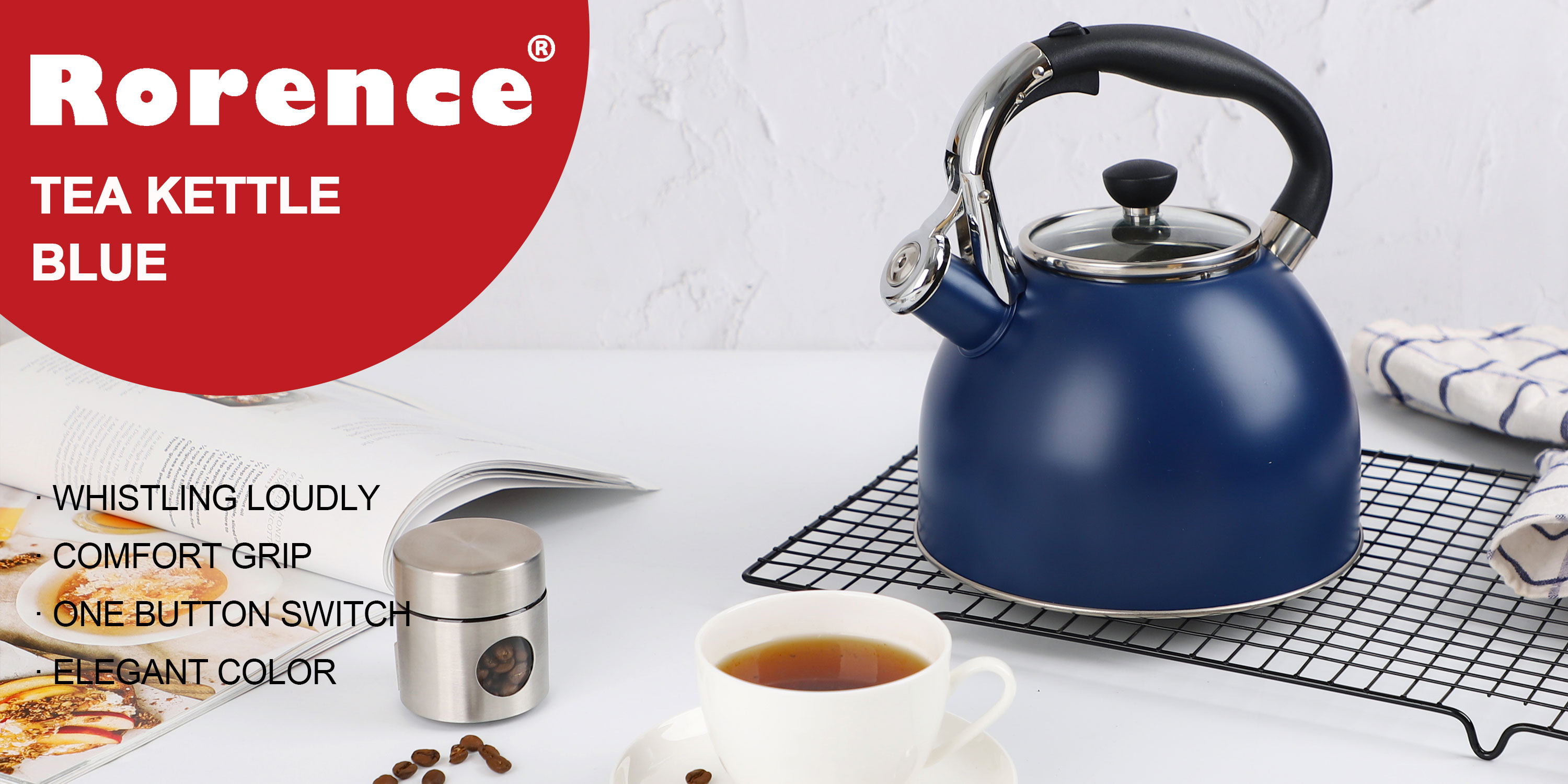What are the healthiest kettles to use?
Stainless Steel Kettles
Stainless steel tea kettles are among the healthiest options available. They are durable, resistant to rust, and do not leach any harmful chemicals into the water. Unlike plastic kettles, which can release BPA and other toxic substances when heated, stainless steel is a non-reactive material that maintains the purity of your water.
Benefits:
- Durability: Stainless steel kettles are built to last, making them a long-term investment.
- Health Safety: They don’t release any chemicals or toxins into your water.
- Easy to Clean: Stainless steel is easy to clean and maintain, reducing the risk of bacterial buildup.
Considerations:
- Some stainless steel kettles may have plastic components like handles or lids. It’s important to choose a kettle with minimal plastic parts or those made from BPA-free plastic.

Glass Kettles
Glass kettles are another excellent choice for health-conscious consumers. They offer a pure, chemical-free boiling experience, as glass is non-reactive and doesn’t leach any substances into the water. Additionally, glass kettles allow you to see the water level and monitor the boiling process, which can be a practical feature.
Benefits:
- Non-Reactive: Glass does not react with water, ensuring no contaminants are introduced.
- Aesthetic Appeal: Glass kettles are often stylish and modern, adding a touch of elegance to your kitchen.
- Visibility: The transparency allows you to see the water boiling and gauge when it’s ready.
Considerations:
- Glass kettles can be more fragile than other materials, so they require careful handling.
- Some glass kettles come with plastic or metal components, so it's important to choose a model with high-quality, BPA-free materials.
Ceramic Kettles
Ceramic kettles are known for their aesthetic appeal and health benefits. Like glass, ceramic is a non-reactive material, meaning it won’t leach any harmful chemicals into the water. These kettles are often beautifully designed and can add a charming touch to your kitchen decor.
Benefits:
- Non-Toxic: Ceramic does not introduce any toxins into your water.
- Heat Retention: Ceramic kettles can retain heat well, keeping your water hot for longer periods.
- Variety of Designs: Available in a wide range of colors and patterns, ceramic kettles can complement any kitchen style.
Considerations:
- Ceramic kettles are heavier and more fragile than stainless steel or glass kettles.
- They may take longer to boil water compared to stainless steel kettles.
Cast Iron Kettles
Cast iron kettles are traditional and have been used for centuries, especially in Eastern cultures. They are known for their excellent heat retention properties and are often used to brew tea. However, they are not as common for boiling water for everyday use.
Benefits:
- Heat Retention: Cast iron kettles keep water hot for extended periods, which is perfect for brewing tea.
- Durability: These kettles are incredibly durable and can last for generations if properly cared for.
Considerations:
- Cast iron kettles are heavy and require regular maintenance to prevent rust.
- They can also be more challenging to clean than other types of kettles.
Avoid Plastic Kettles
Plastic kettles are widely available and often the most affordable option, but they are not the healthiest choice. When exposed to high temperatures, plastic can release harmful chemicals like BPA and phthalates into the water. Even BPA-free plastics can leach other potentially harmful chemicals when heated.
Why to Avoid:
- Chemical Leaching: Plastic can introduce harmful chemicals into your water, especially when exposed to high temperatures.
-
Taste and Odor: Plastic kettles can sometimes give the water an unpleasant taste or smell.














